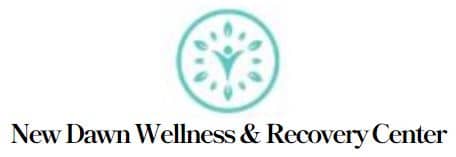Topeka, KS
Addiction Treatment Assessments
Assessments play a crucial role in our addiction treatment services.

Assessments offer insightful information about a person’s requirements, difficulties, and skills. We perform assessments in order to ascertain the best course of therapy for each individual patient. Doing comprehensive evaluations is crucial for an addiction treatment services provider to provide individualized and successful care to those who are abusing substances.
Our Assessment Process
1. Initial Screening
To obtain basic data on the person’s medical history, mental health issues, history of substance abuse, and demographics, the assessment procedure usually starts with an initial screening. This first screening aids in identifying any urgent needs or hazards that need to be attended to right away.
2. All-encompassing Evaluation
After the initial screening, a thorough evaluation is carried out to learn more about the person’s drug usage habits, the extent of their addiction, any co-occurring mental health conditions, their social support network, and any other pertinent information. Standardized questionnaires, interviews, and observation may be used in this examination in order to collect thorough data.
3. Biopsychosocial Assessment
A biopsychosocial assessment is a comprehensive analysis that takes into account the social, psychological, and biological aspects of an individual’s addiction. It looks at how social support networks, psychological weaknesses, environmental factors, and genetic predispositions interact. This thorough understanding makes it easier to customize treatment programs to meet each patient’s specific needs.
4. Diagnostic Evaluation
To screen for co-occurring mental health problems and substance use disorders, addiction specialists may employ diagnostic criteria from the Diagnostic and Statistical Manual of Mental problems (DSM-5). Treatment professionals can create focused therapies to address substance misuse and underlying mental health concerns by pinpointing particular illnesses.
5. Risk Assessment
To guarantee the patient’s safety during the course of treatment, risk factors like aggression, self-harm, suicidality, and medical issues must be evaluated. Tools for risk assessment assist in identifying possible hazards and creating suitable safety procedures to successfully reduce these risks.
6. Motivational Assessment
In order to involve a patient in treatment and maintain recovery efforts, it is essential to ascertain their drive for change. Identifying internal motivators, addressing ambivalence towards therapy, and evaluating the person’s readiness for change are all possible with motivational interviewing techniques.
7. Qualities-Based Assessment
It’s critical to acknowledge the person’s assets and qualities that can aid in their rehabilitation process in addition to recognizing obstacles and deficiencies. Strengths-based evaluations emphasize a person’s assets, abilities, resiliency, and networks of support, all of which can be utilized to enhance good treatment outcomes.
8. Cultural and Diversity Assessment
To guarantee that services for addicts are inclusive and considerate of different origins, cultural competence is crucial in addiction treatment. Cultural values, customs, beliefs, and socioeconomic circumstances should all be taken into account during assessments since they may have an impact on a person’s experiences with addiction and treatment-seeking behaviors.
9. Treatment Planning
Addiction specialists work with the patient to create a customized treatment plan that is suited to their particular requirements and objectives based on the results of the assessment procedure. Plans for treatment delineate precise measures, aims, targets, and schedules for effectively tackling substance dependence and associated problems.
10. Ongoing Monitoring and evaluation
Throughout the course of therapy, assessment is a continuous process that involves periodic monitoring and evaluation to evaluate progress, modify treatment plans as necessary, and handle new requirements or difficulties. By using a dynamic approach, treatment is guaranteed to be flexible and responsive to the patient’s evolving needs.
Assessments are foundational in addiction treatment services, guiding the development of personalized and evidence-based interventions to support individuals in their journey towards recovery. By conducting thorough assessments that consider biological, psychological, social, and cultural factors, addiction treatment providers can deliver comprehensive care that addresses the complex needs of each client effectively.
New Dawn Wellness & Recovery Center
Contact Us
(785) 266-0202
info@newdawnrecovery.org
Hours
M-TH: 8am - 8:30pm
Fri: 8am - 7:30pm
Sat: 8am - 12pm (Appt. Only)
Sun: Closed
Visit Us
1221 SW 17th St
Topeka, KS 66604
